do you have another probe that is not using the XLR that you can hook straight up using the factory red/red/white wires??
do you have another MAX amp board you can try?
do you have another MAX amp board you can try?

I do not have another max board, but I can disconnect my probe at the base and try to wire it from there temporarily...do you have another probe that is not using the XLR that you can hook straight up using the factory red/red/white wires??
do you have another MAX amp board you can try?
I don't follow your logic. I'd say that if it acts the same with no board at all as it does with the board connected, it sounds like the board isn't doing anything.I do not have another max board, but I can disconnect my probe at the base and try to wire it from there temporarily...
However it still gives me that value if the board is completely disconnected, so while there may be an issue there I am fairly confident something has to be wrong software side as well.
I would imagine that the value would change based on a board being connected or not, but if it sounds like there is nothing I am obviously missing software side then I will get a new board and see what happens, just was trying to rule that out before I bought another board.I don't follow your logic. I'd say that if it acts the same with no board at all as it does with the board connected, it sounds like the board isn't doing anything.






![Craft A Brew - Safale S-04 Dry Yeast - Fermentis - English Ale Dry Yeast - For English and American Ales and Hard Apple Ciders - Ingredients for Home Brewing - Beer Making Supplies - [1 Pack]](https://m.media-amazon.com/images/I/41fVGNh6JfL._SL500_.jpg)







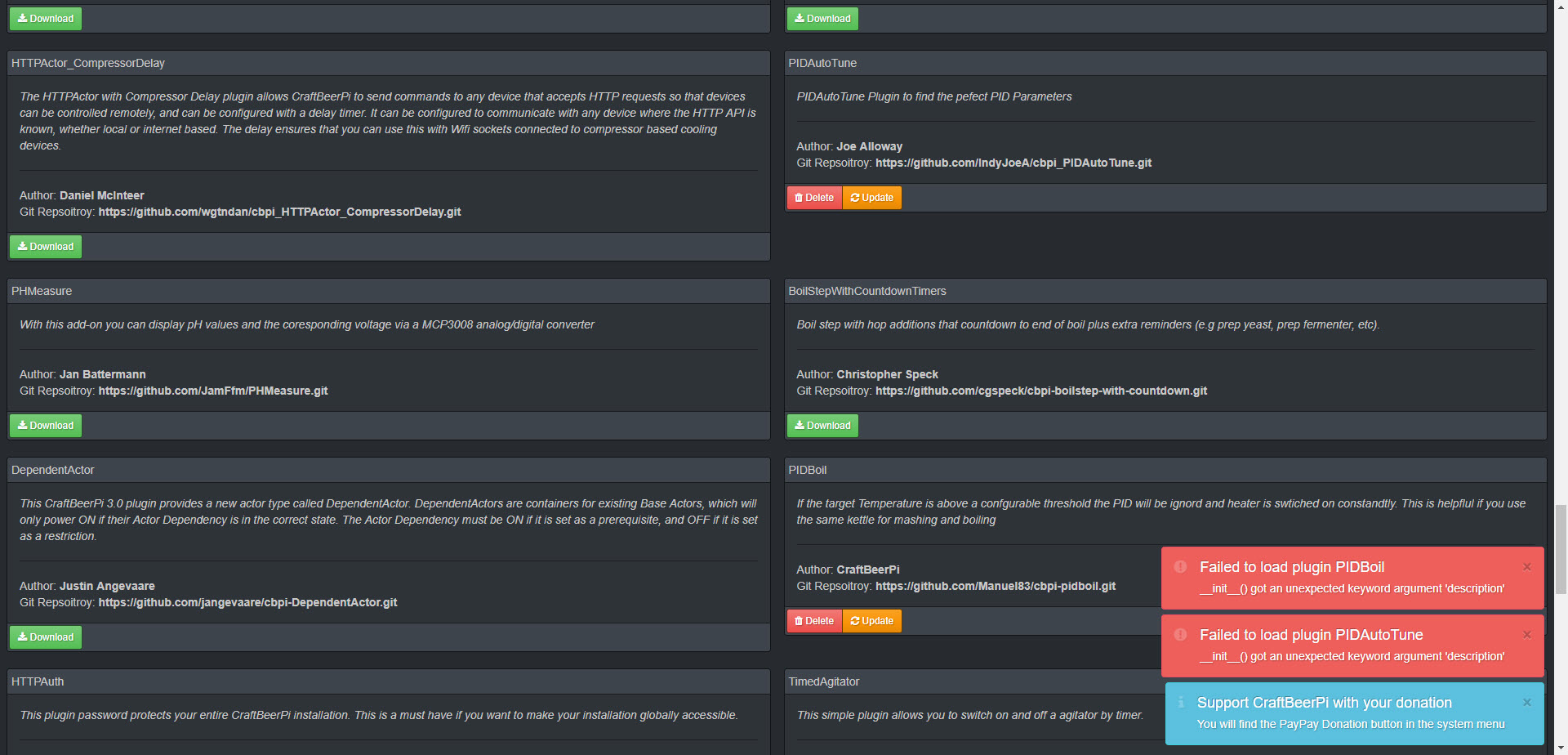
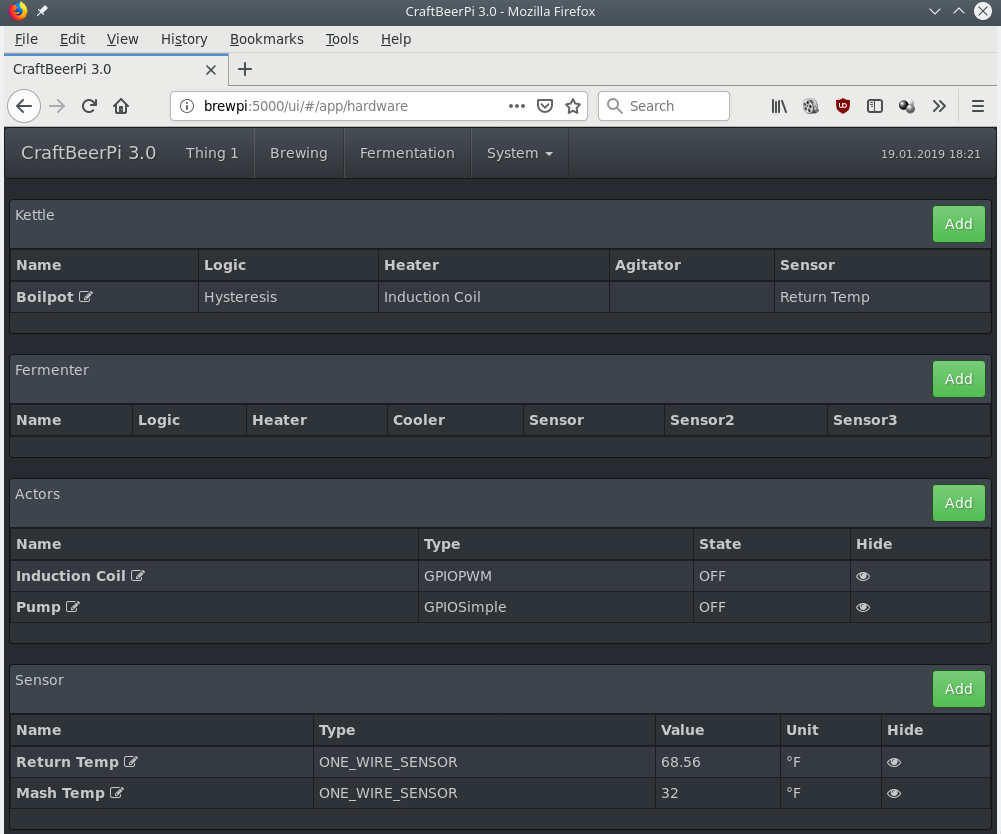
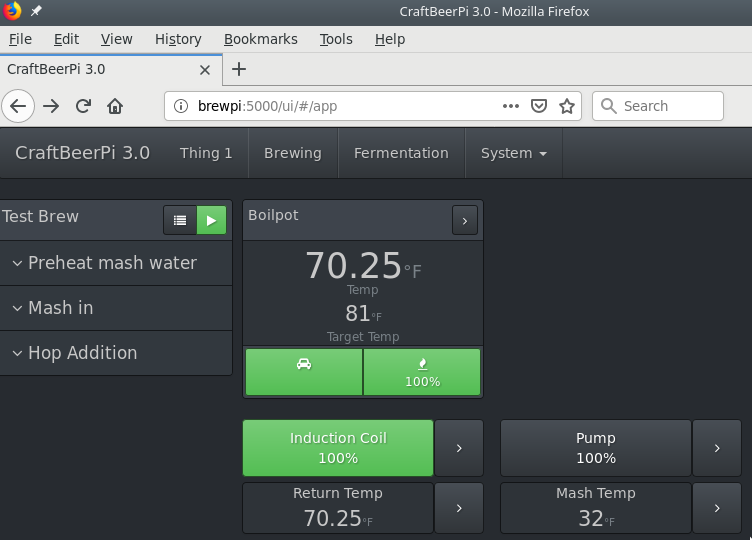
I've actually tested the rpi pins and they're good to go. I'm not sure what you mean by distro. I always start by clicking the car and seeing what happens, but I always end up having to turn the heat off myself so it doesn't get too high.BeerGreek: do you have a voltmeter ? Have you tested that the RPi pin is doing what you expect it to do ? That would isolate the problem to either the RPi or your wiring.
What does your Hardware Settings page look like ?
What distro are you running ?
Have you pressed the Auto button on your brewpot ? (It looks like a car.)
View attachment 608060
View attachment 608061
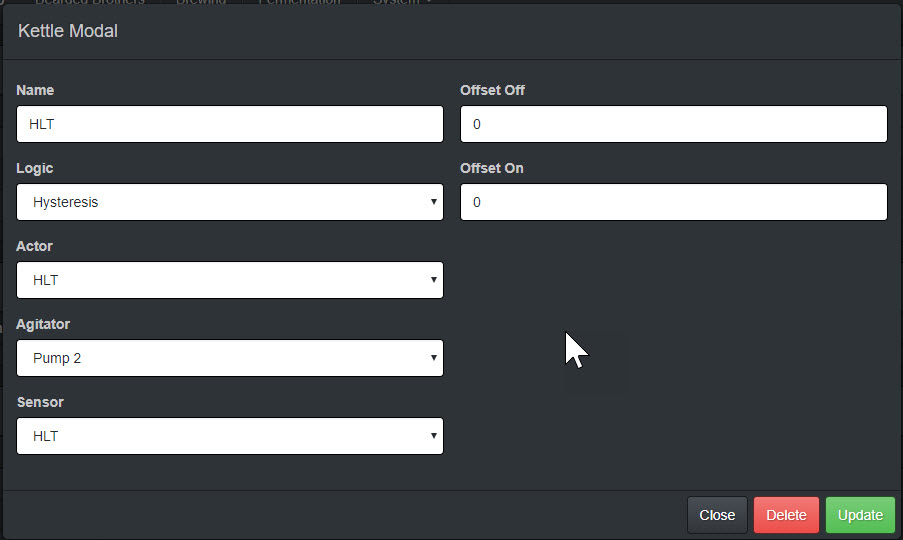
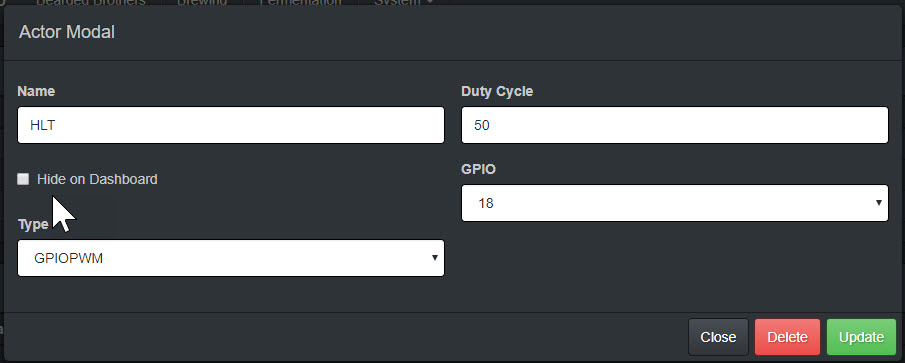
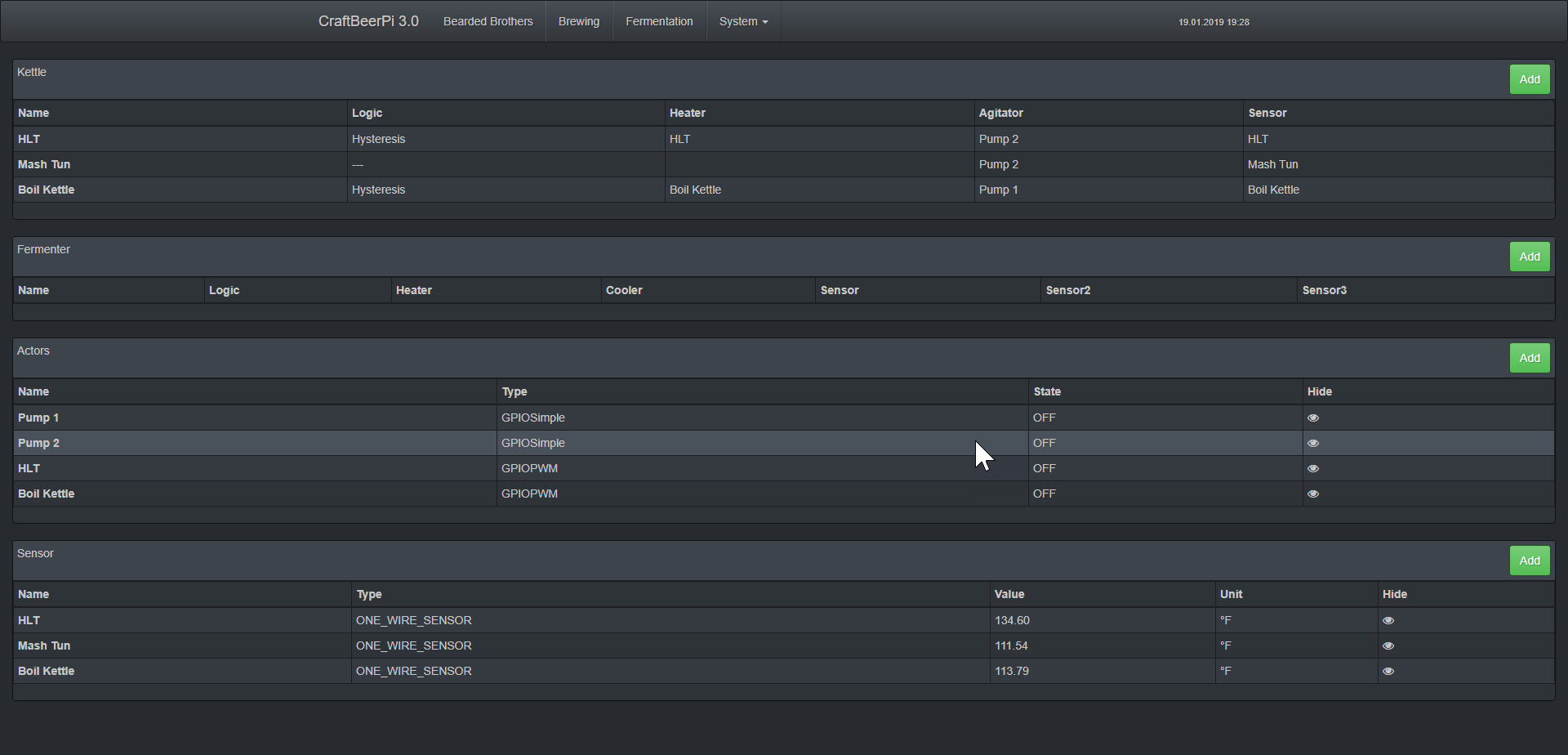
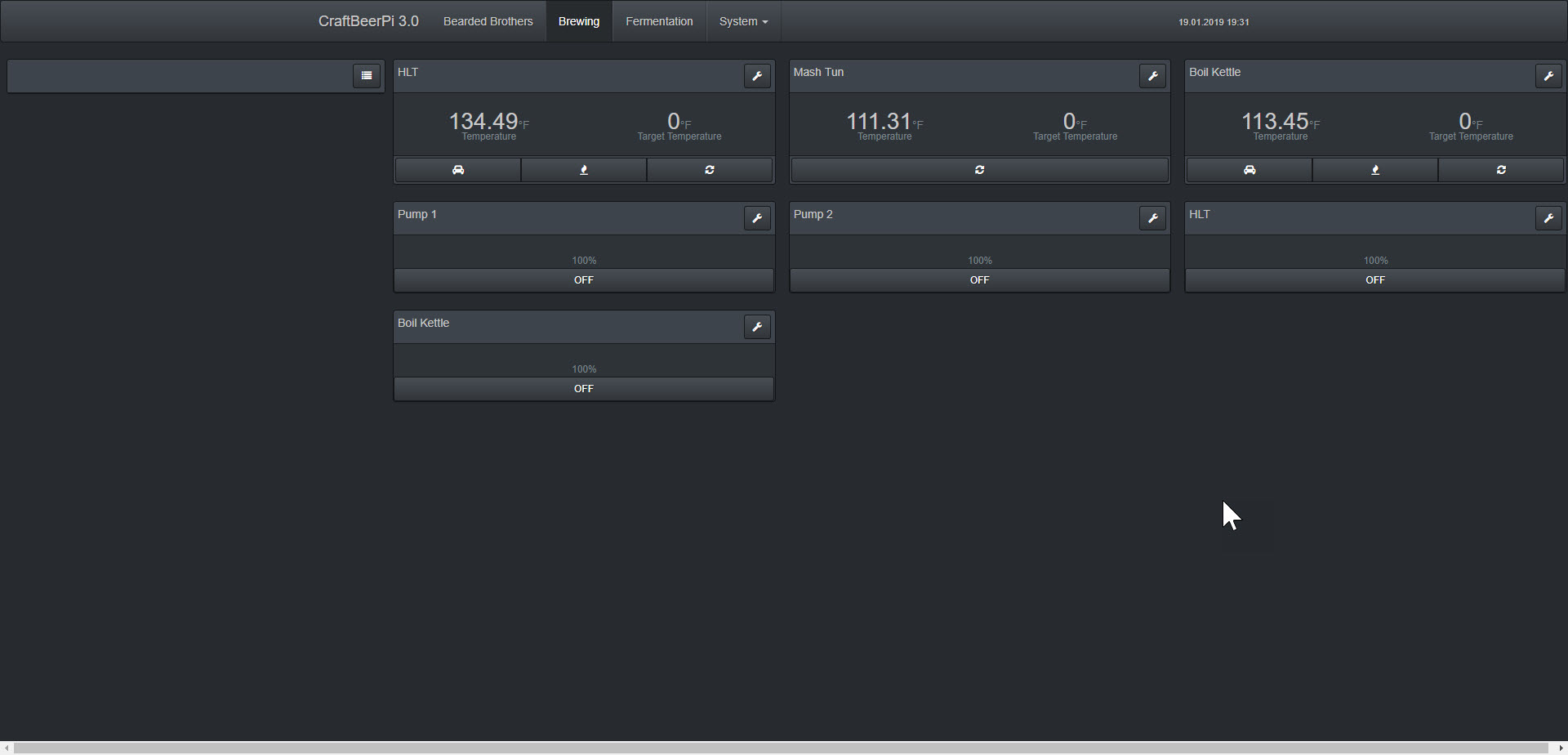
As in Craftbeerpi3?"distro" = package version
No as in Wheezy, Jessie, or Stretch. What version of NOOBS/Raspbian did you install before you install CBPi?As in Craftbeerpi3?
Oh. It's Jessie. Bear with me guys. I'm definitely a Rpi noobNo as in Wheezy, Jessie, or Stretch. What version of NOOBS/Raspbian did you install before you install CBPi?
All good mate, where all here to help or get help, it switches for me regularly which side I'm onOh. It's Jessie. Bear with me guys. I'm definitely a Rpi noob
If you use the standar one wire plugin the temps are read every 5 sec, that is more than good for fermentation.I've got CraftBrewPi 3 set up on a RPi3 running Raspbian. I'm using 18DS20 sensors to control the process. Right now the sensors are bare, ie not in a SS sheath and not encapsulated in epoxy.
They seem to work, but the response and update time seems to be slow. The temperatures read correctly but they only update about once every 6 seconds.
Any idea why the update is so slow ? Is there a way to speed it up ?
Thanks
I have an issue... when I boot my RPi all the relays turn on during the boot process. Is there a way to prevent this ?
Do you mean the light on the SSR's turns on, or there's constant power to the outlets?I have an issue... when I boot my RPi all the relays turn on during the boot process. Is there a way to prevent this ?
So I changed the names to make it a little clearer. I also changed the hysteresis to 1 for the on and off, but that didn't work either. As for the GPIO pins, when I turn everything on manually, it works fine. I can regulate the temp manually. When the HLT gets up to ~155, I change the heater power to 37% and it stays around 157, which keeps my mash tun around 155. I'm using a Herms system so the heat from my HLT is what keeps the mash at the temp it needs to be at. The way it's set up, the HLT temp is what's being controlled, because that's where my heating element is. I don't have a heating element in my mash tun to avoid scorching the grains.BeerGreek: just to humor me, could you change your actors to something different than the name of the kettle ? Maybe HLT Element, for example ?
And set the hysteresis values to something other than 0. Neither of these should make a difference, but it makes things clearer.
What do you mean your GPIO pins are good to go ? Do the pins go on and off correctly when you put the heat actor into manual mode and turn it on and off manually ?
Forgive me for not going back to look, but is your boil kettle overshooting (not controlling) or your mash vessel ? Or HLT ?
Do things work correctly when you use GPIOSimple instead of GPIOPWM ?
so I ran uname -a and it kicked back the following:Could you log into a terminal on your rpi (ssh ?) and run uname -a and tell us what it returns ?
Also, have you run apt-get update and reboot (shutdown -r now)
Have you tested your temp sensors ? Are you sure you've got the right temp sensor tied to the heat actor ?
If your GPIO pins work correctly, does the element itself turn on and off correctly ?
so I ran uname -a and it kicked back the following:
"Linux raspberrypi 4.9.35-v7+ #1014 SMP Fri Jun 30 14:47:43 BST 2017 armv7l GNU/Linux"
I have run apt-get update and rebooted. I've also tested the temp sensors. I used some ice and placed "just the tip"of the thermowell in the ice to make sure the right probe was reading the temp and it all matches. Each one of the temp probes read right around 32 degrees F.
Do you mean the light on the SSR's turns on, or there's constant power to the outlets?
This seems to be a common problem related to how the Pi treats the GPIO pins on boot up and the variety of relay boards people are using, their active state, and how they are powering them.
If you go to the CraftBeerPi user group on Facebook and type in "relays turn on at boot up" there is a lot of information and some work arounds that may help you.
I would put the estop on the power line instead of the ground. I'd rather know that no power is going to the system instead of no ground. IMOI think I will implement an eStop button and just be sure to have it enabled when I boot up. I'll put the button on the ground line from the relays and SSR. Open ground = no work.
SSRs don't need 5V to run, so putting the eStop on the 5V feed won't stop it from coming on.I would put the estop on the power line instead of the ground. I'd rather know that no power is going to the system instead of no ground. IMO
True, but they do need at least 3 volts. What I meant, was in the case where power needs to be cut immediately, I would rather cut the voltage coming into the control box, from the main line in, then the ground. That way if you need to touch one of the components, even though there's a ground you know for a fact there's no power to shock you. Just my though process.SSRs don't need 5V to run, so putting the eStop on the 5V feed won't stop it from coming on.
Interrupting the ground path works just as well. Lots of devices are controlled by the ground path. Most logic families work this way, essentially open collector outputs.
True, but they do need at least 3 volts. What I meant, was in the case where power needs to be cut immediately, I would rather cut the voltage coming into the control box, from the main line in, then the ground. That way if you need to touch one of the components, even though there's a ground you know for a fact there's no power to shock you. Just my though process.
On and off offset need to be diferent.I also changed the hysteresis to 1 for the on and off, but that didn't work either. As for the GPIO pins, when I turn everything on manually, it works fine. I can regulate the temp manually.
Hello,
Beer Greek, have you try to do the auto-tune pid ?
That work good on my set up.
I'll change it and give it another go. ThanksOn and off offset need to be diferent.
Leave on in 0 and off in 1.
Hello,
I watched this video about flowmeter and
I would like to use a flowmeter for fill up the mash tune through the coil Herms of the hlt and for sparging.
Did you think the plugin #flowmeter# on Craftbeerpi will work for start and stop the solenoid valve like on the video?
I checked on the Facebook group but didn't found any good information or picture.
The post I found say that the plugin is not so accurate.
And which can of solenoid valve and flow meter to buy, I see some plastic or copper.
https://s.click.aliexpress.com/e/bNDMvcQ5
Thanks for your help